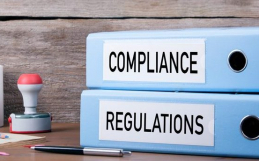Every year, the Australian Competition and Consumer Commission (ACCC) releases a list of its compliance and enforcement priorities for the upcoming 12 months. This year is slated to be the year of enforcing product safety compliance, cracking down on anti-competitive behaviour and monitoring competition in the commercial construction industry.
Emerging Priorities in 2018
New Car Retailing
Following the tabling of the New Car Retailing Industry Report in 2017, the ACCC has decided to prioritise some of the issues which it brought to light, with the main focus being on the enforcement of consumer rights post purchase and enforcement actions against inaccurate fuel consumption and emissions claims.
The report found that new car owners are struggling to enforce their consumer rights if a new car fails to perform as promised or is somehow defective. In 2018, the ACCC wants to address the serious and systemic issues which this report outlined, as it found that many new car dealers and manufacturers are engaged in conduct that is to the absolute detriment of consumers. It appears that the ACCC will be particularly interested in prosecuting those dealers and manufacturers who do not reform their customer complaint systems, as the report concluded that commonly adopted policies do not adequately incorporate consumer rights as mandated by Australian law, instead focusing on the warranty options that their commercial arrangements dictate.
The ACCC has also recommended that extensive efforts be made to ensure that all information related to fuel consumption and emissions is as accurate as scientifically possible and that any propagating of misinformation is subject to enforcement action. This follows the enforcement proceedings instigated by ACCC against Audi and Volkswagen following the revelations by the US’s Environmental Protection Agency that many of their diesel powered cars had been fitted with devices designed to supress the true emission levels if tested.
Consumer Guarantee Rights
The ACCC has decided to prioritise it’s work around consumer guarantee rights after it reported a 39% increase in consumer guarantee issues in 2017. In a January 2018 press release, the ACCC cited misinformation about warranties, retailer reluctance issues, and consumers’ general lack of knowledge about their legislative rights under Australian Consumer Law (ACL) as the key reasons behind the upswing.
The commitment by the ACCC also follows the watchdog’s investigations into the conduct by new car retailers and airlines as well as several successful court cases in 2017 which hinged on companies misrepresenting consumers’ rights under ACL.
The ACCC will be focusing on those companies who engage in conduct or have policies which attempt to diminish consumer rights through spreading misinformation, refusing to acknowledge those rights, or make it unreasonably difficult for consumers to enforce their rights, with a particular emphasis on big businesses and national companies. There will also be a strong focus on companies who attempt to use warranties, or lack thereof, to circumvent having to replace, refund, or repair faulty or broken goods.
Online Product Safety
The ACCC has decided to make ensuring the product safety of items bought online a priority in 2018. There is no doubt that this campaign is designed to work in tandem with the other 2018 priorities of the ACCC, most specifically the renewed emphasis on consumer guarantee protections. While the ACCC did a report into the issue in 2014, changes in both the market place and Australian legislation have meant that it is time to remind consumers and suppliers alike of their rights and responsibilities under the ACL.
It is expected that companies that make methods of return, refund, or exchange of faulty products unduly difficult for consumers or companies whose policies do not comply with ACL to come under increased scrutiny. The ACCC will also be keen to take enforcement action against anyone operating online who sells a product which is not in compliance with Australian safety laws or whose products which pose serious risk to consumers, as it has done in previous years.
Misuse of Market Power & Concerted Practices
Subsequent to recent changes regarding the misuse of market power and concerted practices provisions of ACL, the ACCC is maintaining its hard-line attitude towards such conduct. At the end of 2017, they issued a set of interim guidelines on both the new misuse of market power and concerted practices provisions due to the significant nature of the changes. It seems likely that the ACCC will be taking aim at anyone who does not heed the warning the new legislation is intended to give – shape up or prepare for prosecution.
Commercial Construction
The ACCC has decided to prioritise its investigations into the commercial construction industry, following on the establishment of a specialised unit in 2017. The unit is specifically designed to investigate allegations of anti-competitive behaviour by participant companies in the industry. Additionally, the ACCC will be seeking to take action against any companies that fall foul of ACL in the wake of several successful court actions in recent months. Most notably, it has been revealed that the Federal Court ordered the Construction, Forestry, Mining and Energy Union (CFMEU) to pay $1 million in penalties after the Court agreed with the ACCC’s ascertains that the secondary boycott actions engaged in by the CFMEU amounted to a contravention of the Competition and Consumer Act 2010 (Cth).
Financial Services
In 2017, the ACCC established a Financial Services Unit (FSU) in order to undertake inquiries into the financial sector. The aim of the FSU is to offer analysis, advice, and ‘consistent scrutiny’ on the issues which fall under the ACCC’s mandate. Given the newness of the FSU, it is unsurprising that the ACCC has made competition issues in the financial sector a priority this year.
Digital Platforms
The Federal Treasurer directed the ACCC to undertake an investigation into digital platforms in late 2017. This investigation is expected to look into how digital platforms, such as search engines and social media sites, affect competition in the media and advertising spheres. There will be a particular interest in the implications of these platforms and their effects with regard to ‘the supply of news and journalistic content’.
Enduring Priorities from 2017
Cartel Conduct
The ACCC has renewed its commitment to opposing all types of Cartel Conduct, as it has done in previous years.
Anti-competitive conduct
Alongside this year’s focus on the misuse of market power, the ACCC has continued its policy of prioritising work against anti-competitive agreements, behaviours, and practices.
Product Safety
While the Takata airbag recall dominates the national headlines and the ACCC has promised to make issues arising from the scandal a key priority in 2018, they have also recommitted themselves to maintaining high priority for any product safety issues which have a high risk of causing serious harm.
At Bryks Lawyers, we have extensive experience in dealing with the Competition and Consumer Act and the Australian Consumer Law. Contact our team today for assistance, including group training programs, individualised compliance programs and easy-to-read manuals about the competition and consumer law.








